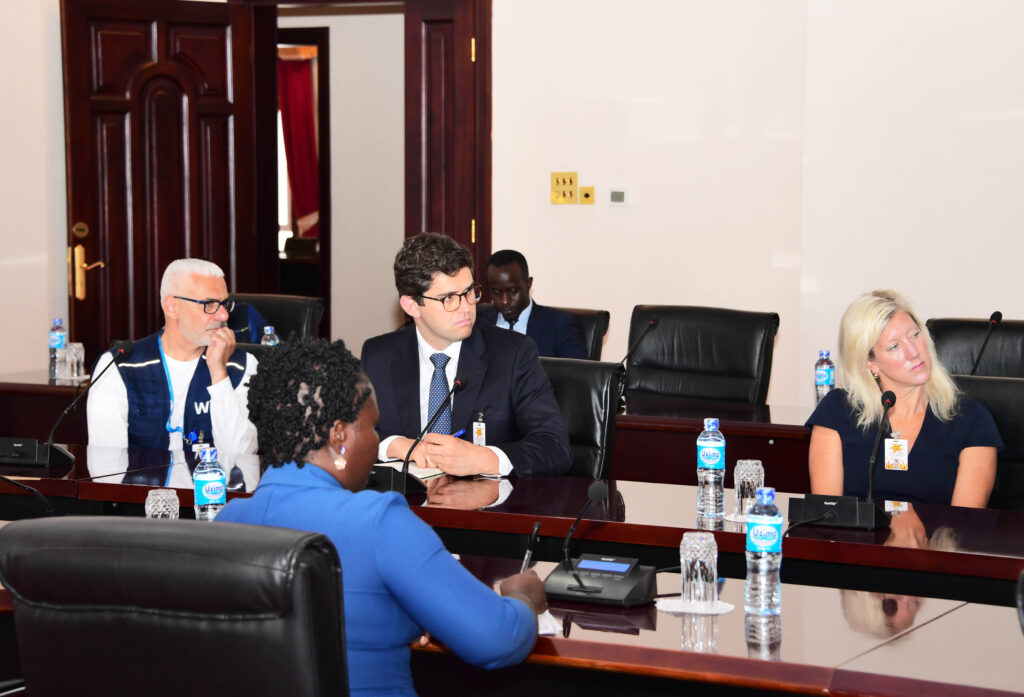President Yoweri Kaguta Museveni has urged a transition from traditional humanitarian aid to sustainable, agriculture-driven solutions for refugees in Uganda.
Speaking during a meeting with officials from the United Nations World Food Programme (WFP) at State House, Entebbe, the President emphasized the need to move beyond emergency relief and focus on long-term, self-reliant livelihoods through efficient land use and organized farming.
“Uganda has always welcomed our displaced brothers and sisters, but it’s time we go beyond emergency response,” he stated. “Many refugee settlements are spread inefficiently, occupying vast land with scattered shelters. This setup hinders economic activity and large-scale farming.”
With over 1.8 million refugees and asylum seekers—mainly from South Sudan, the Democratic Republic of Congo, and Burundi—Uganda remains one of the world’s leading refugee-hosting nations.
To address land use challenges, President Museveni proposed restructuring refugee settlements into compact, planned communities. He likened the idea to creating “small campuses or villages” to allow for collective farming and surplus food production.
Citing Nakivale Refugee Settlement, which spans 71 square miles, the President noted that such areas could be transformed into productive farmland with the right planning and infrastructure. “The land is available. What we need is better organization so refugees can grow food, earn an income, and rely less on aid,” he added.
He also reaffirmed Uganda’s Pan-African approach to refugee policy: “These are not foreigners in the real sense. Many share ethnic and cultural ties with Ugandans. Our borders were drawn by colonialists. When they come here, we treat them as our own.”

WFP Executive Director Ms. Cindy McCain welcomed the President’s proposals and praised Uganda’s progressive refugee policies. She noted the country’s vast agricultural potential and expressed WFP’s full support for sustainable, development-oriented initiatives.
“The land here is fertile and abundant. We’re confident in Uganda’s strategy to empower refugees and host communities through agriculture,” she said. “We will relay this to both large and small donors—that Uganda is working to make refugee communities self-reliant.”
Ms. McCain also commended Uganda’s leadership on the global stage: “Your compassionate approach to refugee hosting continues to inspire the world.”
WFP Uganda Country Director Mr. Marcus Prior applauded the team’s innovation and resilience amid limited resources. He also highlighted strong collaboration with the Government of Uganda, especially through the Office of the Prime Minister under Hon. Eng. Hilary Onek.
“We’ve maintained an excellent partnership with the Ministry, which has been vital to our progress,” Mr. Prior said, reiterating WFP’s commitment to ensuring refugees not only survive but thrive.
Also in attendance were Ms. Rukia Yacoub, WFP Deputy Regional Director; Ms. Meghan Latcovich, Chief of Staff; Mr. Alessandro Ceretti and Mr. Julian Civiero from the Office of the Executive Director, WFP.









